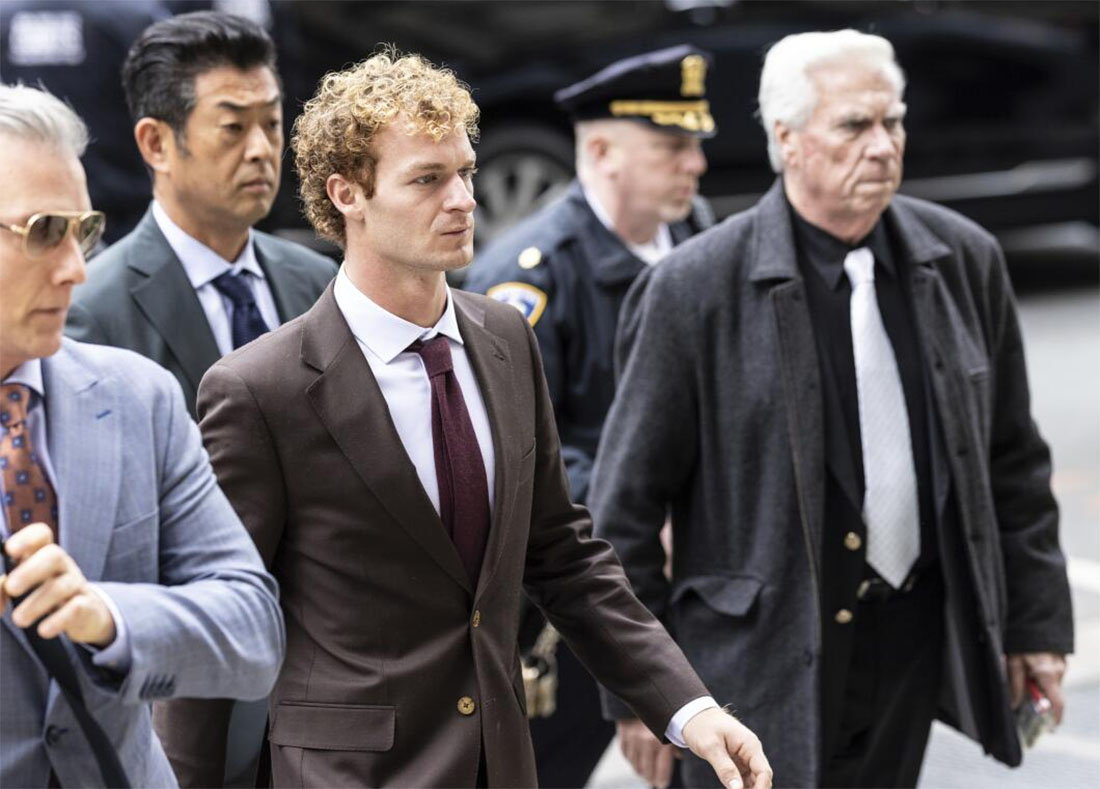Photo Credit: Getty Images
A jury in Manhattan, on December 9, 2024, has officially acquitted Daniel Penny on counts of a criminally negligent homicide in the very controversial subway chokehold death of a citizen called Jordan Neely. The case, captured on video and widely shared online, reignited debates about mental health services and public safety in New York City's subway system.
The fatal incident occurred on May 1, 2023, aboard an uptown F train. Witnesses reported that Neely, 30, entered the train shouting and threatening passengers.
Penny, a 26-year-old Marine veteran, approached Neely from behind and restrained him in a chokehold. Video footage showed Penny holding Neely down for several minutes until he stopped moving. Police efforts to revive Neely were unsuccessful, and the medical examiner later ruled his death a homicide caused by neck compression.
Neely's troubled history, marked by homelessness and mental health struggles following his mother's 2007 murder, highlighted the systemic failures in addressing vulnerable individuals.
While some viewed Penny's actions as necessary to protect passengers, others condemned the excessive force, sparking citywide protests and calls for accountability.
The legal proceedings against Penny began swiftly. Charged with second-degree manslaughter and criminally negligent homicide, he surrendered to authorities on May 12, 2023, and was released on $100,000 bail. The trial commenced on November 1, 2024, in Manhattan Supreme Court, with a jury comprising 12 members of diverse racial backgrounds.
Throughout the trial, the prosecution emphasized that Penny's actions were reckless and unjustified, arguing he failed to consider alternative means of de-escalation.
They pointed to Neely's lack of weapons and questioned Penny's prolonged use of the chokehold. In contrast, the defense portrayed Penny as a courageous individual acting under pressure to protect others, asserting that Neely's erratic behavior left no other options.
Jurors deliberated for over 20 hours across four days, reviewing key evidence, including bodycam footage and expert testimony. On December 6, they informed the judge of their inability to reach a unanimous decision on the manslaughter charge, which was subsequently dismissed. Their final verdict, delivered three days later, cleared Penny of negligent homicide.
The acquittal was met with mixed reactions. Penny's attorney, Steven Raiser, defended his client's actions, stating, "Who do you want on the next train ride with you?" Meanwhile, advocates for Neely's family criticized the outcome, underscoring the broader implications for mental health reform and public safety.


